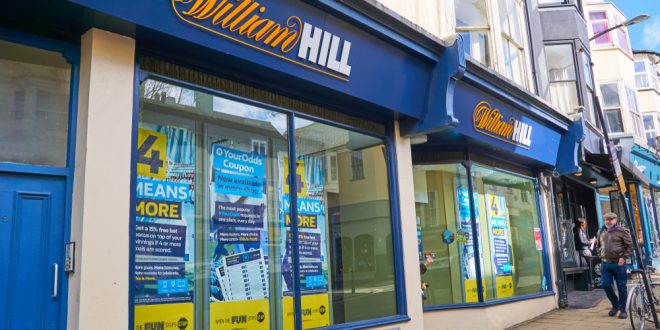Evoke Plc is focused on the ‘execution of short-term actions’ to maximise operating margins and return its business to growth in H2 trading.
This statement follows the LSE gambling group publishing interim results, showing H1 losses (after tax) of £143m – a 300% increase compared to 2023 losses of £32m.
A summary of H1 trading detailed performance declines, specifically impacting its William Hill retail business, where leadership admitted that its “gaming offering, in particular, had fallen behind the competition.”
In line with management expectations, H1 Group revenues amounted to £862m (H1 2022: £881m); however, group accounts detailed double-digit adjusted EBITDA declines across all core business segments.
UK trading saw Evoke register a 1% increase in online revenues to £338m. The performance of its UK online portfolio was below expectations, as despite UEFA Euro 2024 trading, online sports betting revenues decreased by 5.3% during the period.
Of concern, UK brands registered “lower than expected returns from Q1 marketing and promotional activities,” as UK online adjusted EBITDA decreased by £15.3m to £43.7m (-25%).
As noted by Group CEO, Per Widerström: “The return on our marketing – primarily in UK Online – was lower than expected, leading to an online marketing ratio of 25%, which was higher than planned. We have put in place a new and experienced commercial leadership team and marketing leadership team, and we are transforming the way we plan and undertake our marketing.”
Retail results saw William Hill register a 7% decline in revenues to £258m (H1 2023: £279m), as management continues to reorganise estates to achieve net savings.
Carrying a “high proportion of fixed costs and negative operating revenue leverage,” William Hill registered a 37% decline in adjusted EBITDA to £38m (H1 2023: £61m).
On retail challenges, Widerström noted: “In Retail, we were pursuing an in-house solution for gaming cabinets and software. The rationale for this was clear: to drive differentiation.
However, our initial tests indicated that customers were reacting poorly to the different product proposition, despite a broader range of games and some unique promotion tools. All our plans are data-led, and we reassess and act decisively when the data does not support them.”
Meanwhile, despite maintaining growth in the ‘core markets’ of Spain, Italy, and Denmark, Evoke’s International Unit registered stagnant revenues of £265m.
Gains in core markets were offset by reduced revenues in international markets where Evoke is changing business models, and by the H1 termination of its US market joint venture.
Evoke continues to revise the ‘country mix’ of the International Unit, which reported a 23% decline in its adjusted EBITDA results to £40m.
Group CEO Per Widerström commented: “As I said in our July trading update, while the financial performance in the first half was disappointing and behind our initial plan, the underlying health of the business is continually getting stronger.
The corrective actions we have already taken give us even more confidence that our strategic approach is sound and that we will achieve sustainable success.”
Group accounts detailed that operating costs rose to £362m from £319m – an increase attributed to costs associated with exceptional items, “including fees related to corporate transactions and expenses for integration and transformation efforts.”
H2 trading will see Evoke’s new leadership team take decisive actions to address H1 underperformance and execute a turnaround in short-term trading, whilst building enhanced capabilities to drive competitive advantage.
Leadership maintains its guidance to return to growth in H2 trading, with revenue up by 5-9% and adjusted EBITDA margin expected to improve to approximately 21%, along with a pledge to deliver “£30m of targeted cost efficiencies for full-year trading.”
The goals of the leadership’s Value Creation Plan (VCP) are bolstered by Evoke refinancing its Euro/GBP debt notes, allowing corporate debt to be expanded by £400m, with maturities due by 2030.
Closing H1 accounts, CEO Widerström commented: “We are completely transforming this business. Whilst the scale of change is significant, it is necessary for us to deliver mid and long-term profitable growth and value creation.
We have already taken bold, decisive actions to both instigate a turnaround in short-term trading performance and simultaneously invest in the Group’s capabilities to drive step-change value creation and build a bigger, more profitable, more sustainable, and more cash generative business in the future.
We have a clear plan, vision, and financial targets. As a result of our strategic progress and the enhancements already made to the business, I am even more confident about delivering our Value Creation Plan and driving sustainable profitable growth over the coming years.”
Don’t forget to subscribe to our Telegram channel!
